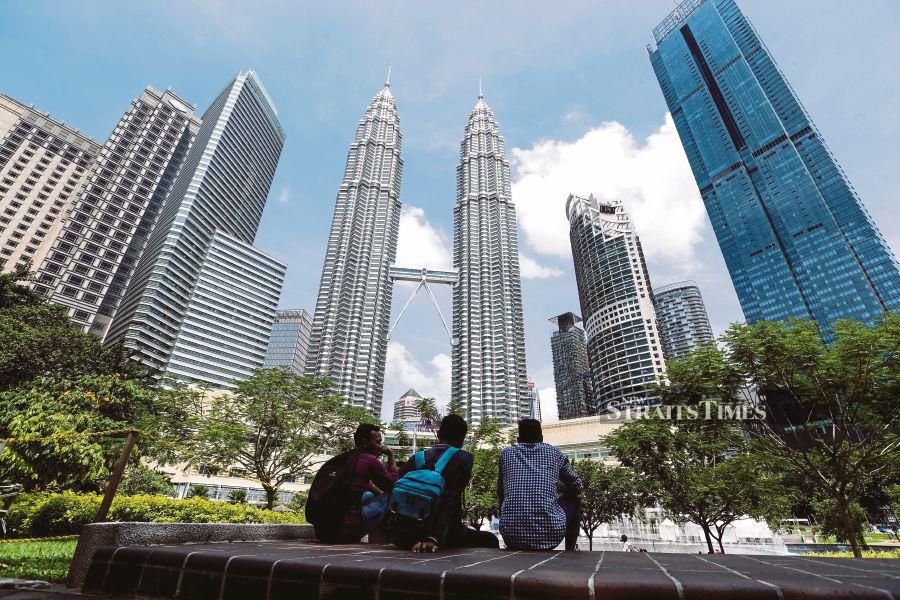
Lcal digital spending to grow 2.7 times in a market worth US$9.1 bil locally
by Ayisy YusofKUALA LUMPUR: Digital spending in Malaysia is expected to grow 2.7 times in 2025 in a market estimated to be worth US$9.1 billion.
Facebook Malaysia country director Nicole Tan said the increase in Malaysia’s online spending will outpace the growth of digital consumers in Southeast Asia by at least twice by 2025.
“With new horizons in growth especially in clothing and personal care categories likely to lead,” she told the New Straits Times recently.
She said more than 140 million businesses globally use Facebook’s social media platform monthly to find new customers, hire employees and engage with customers.
“Hence, commerce landscape will continue to evolve with people opting to interact with businesses via experiences that are most relevant, personal, and seamless in their daily lives.
“People adopt new technologies long before businesses do, and it influences how they discover, research and finally make purchasing decisions,” she added.
She said presently most Malaysian consumers would want everything almost immediately, making every step or delay a chance for them to abandon their journeys.
“At the start of 2019, we shared three social trends that were on rise across our platforms - ephemeral sharing, videos and messaging,” added Tan.
She said these trends have only intensified in the Asia Pacific (APAC) region this year, focusing more on mobile, video, stories, conversation and commerce.
“In 2019, over 54 per cent of digital video viewers were from APAC as video on mobile was far from a homogenous experience.
“We have seen two distinct categories of video experiences that have accelerated largely due to mobile: “on-the-go” and “captivated viewing,” she said, adding that people now want more personalised viewing and clarity over what businesses are offering.
She said currently Facebook has more than half a billion daily users globally as the social media and technology company help businesses to embrace this new format.
“The preference on ephemeral sharing continues as we see more adoption as people now share stories experiences across Facebook, Messenger, Instagram, and WhatsApp,” she said.
She reckoned that businesses were actually happening on messaging platforms, as people took their interest in a product or services by messaging a business.
“This preference for messaging is the growing use of messaging or online chat to buy and sell, term as conversational commerce.
“Southeast Asia outpaces other countries surveyed in both awareness and adoption of conversational commerce, based on a 2019 study in partnership with Boston Consulting group,” she said.
The increasing choice, better internet access and rising affluence will continue to drive more online spend in Southeast Asia, according to Facebook and Bain & Company’s new study, titled - Riding the Digital Wave: Southeast Asia’s Discovery Generation.
She said the study surveyed 12,965 respondents across Indonesia, Malaysia, the Philippines, Singapore, Thailand, and Vietnam, and interviewed more than chief executives and venture capitalists in the region.
The study showed that emerging middle class in Southeast Asia will account between 70 per cent and 80 per cent of the growth in digital consumers by 2025.
The study revealed that: the region grew 2.8 times from 90 million digital consumers in 2015 to 250 million digital consumers in 2018. It is also estimated there will be 310 million digital consumers in the region by 2025.
“By then, online spending will outpace the growth of digital consumers by a factor of three,” she said.
Meanwhile, she said Facebook Malaysia is required to charge a 6.0 per cent tax on the sale of ads to all advertisers in Malaysia.
“We conform to local requirements where we operate our business and remain focused on helping to fast forward the country's digital transformation by helping Malaysian businesses grow both at home and abroad,” she said.
The government first will imposed a 6.0 per cent digital tax on foreign service providers effective January 1, 2020 at last year's Budget tabling.